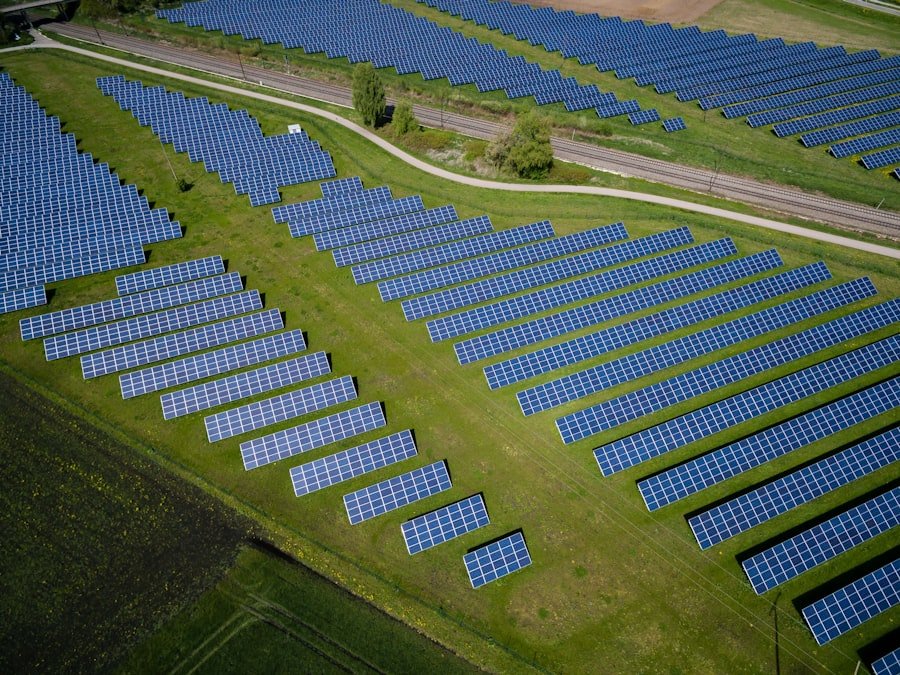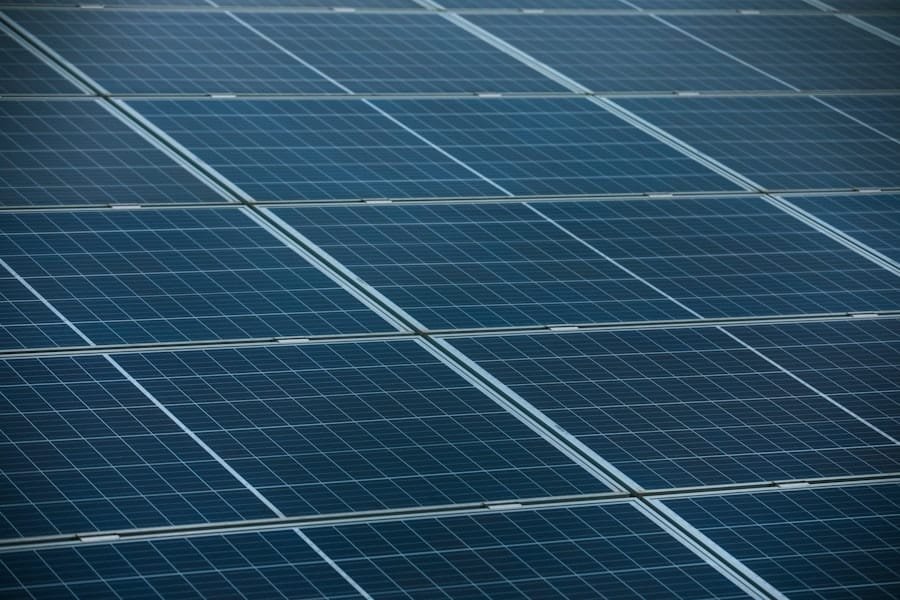The intersection of artificial intelligence (AI) and renewable energy represents a transformative frontier in the quest for sustainable energy solutions. As the world grapples with the pressing challenges of climate change and the depletion of fossil fuels, the integration of AI technologies into renewable energy systems offers promising avenues for enhancing efficiency, reliability, and scalability. AI encompasses a range of computational techniques, including machine learning, neural networks, and data analytics, which can be harnessed to optimise various aspects of renewable energy production and consumption.
This synergy not only facilitates the transition to cleaner energy sources but also empowers stakeholders to make informed decisions based on real-time data and predictive analytics. The urgency of transitioning to renewable energy sources is underscored by the increasing global demand for energy, coupled with the need to reduce greenhouse gas emissions. Governments, businesses, and researchers are increasingly recognising that AI can play a pivotal role in this transition.
By leveraging vast amounts of data generated by renewable energy systems, AI can enhance operational efficiencies, improve forecasting accuracy, and enable smarter grid management. As we delve deeper into the various applications of AI within the renewable energy sector, it becomes evident that these technologies are not merely supplementary; they are essential for realising a sustainable energy future.
Summary
- AI is revolutionizing the renewable energy sector by improving forecasting, grid management, resource assessment, maintenance, market analysis, and policy planning.
- AI is enhancing renewable energy forecasting and optimization by analysing complex data sets to improve accuracy and efficiency.
- AI is transforming renewable energy grid management by enabling real-time monitoring and control for better integration of renewable sources into the grid.
- AI is revolutionizing renewable energy resource assessment by using advanced algorithms to identify optimal locations for renewable energy projects.
- AI is improving renewable energy maintenance and monitoring by predicting equipment failures and optimizing maintenance schedules, leading to increased reliability and efficiency.
- AI is shaping the future of renewable energy market analysis by providing insights into consumer behaviour, market trends, and investment opportunities.
- AI is influencing renewable energy policy and planning by providing data-driven insights to policymakers for better decision-making and strategic planning.
- The future of AI in advancing renewable energy looks promising, with continued advancements in technology and increased integration of AI solutions across the renewable energy sector.
AI in Renewable Energy Forecasting and Optimization
One of the most significant applications of AI in renewable energy lies in forecasting and optimisation. Accurate forecasting of energy production from renewable sources such as solar and wind is crucial for effective grid management and energy distribution. Traditional forecasting methods often struggle to account for the inherent variability and unpredictability of these energy sources.
However, AI algorithms, particularly those based on machine learning, can analyse historical weather data, real-time meteorological information, and energy production patterns to generate highly accurate predictions. For instance, companies like Google have employed deep learning techniques to improve solar power generation forecasts, resulting in enhanced operational planning and reduced reliance on fossil fuel backup systems. Optimisation extends beyond forecasting; it encompasses the efficient allocation of resources to maximise energy output while minimising costs.
AI-driven optimisation models can evaluate numerous variables simultaneously, such as weather conditions, energy demand patterns, and equipment performance. This capability allows operators to make data-driven decisions regarding when to store energy, when to sell it back to the grid, or when to utilise backup generators. For example, in wind farms, AI can optimise turbine performance by adjusting blade angles in real-time based on wind speed and direction, thereby maximising energy capture.
Such advancements not only enhance the economic viability of renewable projects but also contribute to a more stable and resilient energy grid.
AI in Renewable Energy Grid Management

The integration of AI into grid management represents a paradigm shift in how electricity systems operate. Modern power grids are becoming increasingly complex due to the proliferation of distributed energy resources (DERs), such as rooftop solar panels and battery storage systems. AI technologies can facilitate real-time monitoring and control of these diverse resources, ensuring that supply meets demand efficiently.
For instance, AI algorithms can analyse consumption patterns across different regions and adjust the distribution of electricity accordingly, thereby preventing outages and reducing waste. Moreover, AI can enhance grid resilience by predicting potential failures or disruptions before they occur. Predictive maintenance models powered by machine learning can analyse data from sensors installed on grid infrastructure to identify anomalies that may indicate impending equipment failures.
By addressing these issues proactively, utility companies can minimise downtime and maintain a reliable power supply. In addition, AI can assist in integrating renewable energy sources into the grid by optimising the balance between generation and consumption. This capability is particularly vital as more intermittent sources like solar and wind are added to the energy mix, necessitating advanced management strategies to ensure grid stability.
AI in Renewable Energy Resource Assessment
Resource assessment is a critical component of renewable energy project development, as it determines the feasibility and potential output of a given site. Traditional methods of resource assessment often rely on manual measurements and historical data analysis, which can be time-consuming and prone to inaccuracies. In contrast, AI technologies can streamline this process by analysing vast datasets from various sources, including satellite imagery, weather stations, and environmental sensors.
For example, machine learning algorithms can process satellite data to identify optimal locations for wind farms by assessing wind patterns over large geographical areas. Furthermore, AI can enhance the accuracy of solar resource assessments by integrating data from multiple sources, such as ground-based measurements and atmospheric models. This comprehensive approach allows developers to make informed decisions about site selection and system design.
Companies like SolarCity have utilised AI-driven analytics to optimise solar panel placement on rooftops by considering factors such as shading from nearby structures and historical sunlight exposure. By improving resource assessment methodologies through AI, stakeholders can reduce project risks and increase the likelihood of successful renewable energy deployments.
AI in Renewable Energy Maintenance and Monitoring
The maintenance and monitoring of renewable energy systems are crucial for ensuring their long-term performance and reliability. Traditional maintenance practices often follow a reactive approach, addressing issues only after they arise. However, with the advent of AI technologies, a shift towards predictive maintenance is becoming increasingly feasible.
By analysing data collected from sensors embedded in equipment such as wind turbines or solar panels, AI algorithms can identify patterns that indicate potential failures or performance degradation. This proactive approach allows operators to schedule maintenance activities at optimal times, reducing downtime and minimising repair costs. In addition to predictive maintenance, AI can enhance real-time monitoring capabilities for renewable energy systems.
Advanced analytics platforms can process data streams from various sensors to provide operators with insights into system performance and efficiency. For instance, in solar farms, AI can monitor individual panel performance and detect anomalies such as shading or dirt accumulation that may hinder energy production. By enabling timely interventions based on real-time data analysis, operators can ensure that renewable energy systems operate at peak efficiency throughout their operational lifespan.
AI in Renewable Energy Market Analysis

The integration of AI into market analysis is revolutionising how stakeholders understand and navigate the complexities of the renewable energy landscape. Market dynamics are influenced by a multitude of factors, including regulatory changes, technological advancements, and shifts in consumer behaviour. AI-driven analytics can process vast amounts of market data to identify trends and forecast future developments with greater accuracy than traditional methods.
For example, machine learning models can analyse historical pricing data alongside macroeconomic indicators to predict fluctuations in renewable energy prices. Moreover, AI can assist investors in making informed decisions by providing insights into emerging opportunities within the renewable sector. By analysing patterns in investment flows and project developments across different regions, AI algorithms can identify high-potential markets for renewable energy deployment.
This capability is particularly valuable for venture capitalists and private equity firms seeking to invest in innovative technologies or projects that align with sustainability goals. As the renewable energy market continues to evolve rapidly, the ability to leverage AI for market analysis will be essential for stakeholders aiming to stay ahead of the curve.
AI in Renewable Energy Policy and Planning
The role of AI in shaping renewable energy policy and planning cannot be overstated. Policymakers face complex challenges when designing frameworks that promote sustainable energy development while ensuring economic viability and social acceptance. AI technologies can provide valuable insights into the potential impacts of various policy scenarios by simulating outcomes based on historical data and predictive models.
For instance, machine learning algorithms can assess how different incentives for renewable energy adoption might influence consumer behaviour or investment decisions. Furthermore, AI can facilitate stakeholder engagement by providing transparent data visualisations that illustrate the benefits of proposed policies or projects. By making complex information more accessible to the public and decision-makers alike, AI can foster informed discussions around renewable energy initiatives.
Additionally, AI-driven tools can assist in identifying areas where policy interventions may be most effective in promoting renewable energy adoption or addressing barriers to deployment. As governments strive to meet ambitious climate targets, leveraging AI for policy analysis will be crucial for developing effective strategies that drive meaningful change.
The Future of AI in Advancing Renewable Energy
The future of artificial intelligence in advancing renewable energy is poised for significant growth as technological advancements continue to unfold. The integration of AI across various facets of renewable energy—from forecasting and optimisation to grid management and policy planning—will play an instrumental role in shaping a sustainable energy landscape. As stakeholders increasingly recognise the value of data-driven decision-making, investments in AI technologies will likely accelerate.
Moreover, as global efforts intensify towards achieving net-zero emissions targets, the demand for innovative solutions that enhance the efficiency and reliability of renewable energy systems will only increase. The collaboration between technology developers, policymakers, and industry stakeholders will be essential in harnessing the full potential of AI within the renewable sector. By embracing these advancements, society stands at the threshold of a new era where clean energy becomes not just an aspiration but a tangible reality powered by intelligent systems capable of adapting to an ever-changing environment.
In addition to exploring The Role of AI in Advancing Renewable Energy, businesses can also benefit from implementing effective business travel tips for easier business trips. This article on 8 Business Travel Tips provides valuable insights on how companies can streamline their travel processes and enhance productivity. By incorporating these tips into their operations, businesses can ensure that their employees travel efficiently and effectively, ultimately contributing to their overall success.
FAQs
What is the role of AI in advancing renewable energy?
AI plays a crucial role in advancing renewable energy by optimizing the efficiency of renewable energy sources, predicting energy production, and improving energy storage systems.
How does AI optimize the efficiency of renewable energy sources?
AI can optimize the efficiency of renewable energy sources by analyzing data from sensors and weather forecasts to adjust the operation of renewable energy systems, such as solar panels and wind turbines, to maximize energy production.
How does AI predict energy production in renewable energy systems?
AI uses machine learning algorithms to analyze historical data and real-time information to predict energy production in renewable energy systems, helping energy operators to better manage and plan for energy generation.
What role does AI play in improving energy storage systems for renewable energy?
AI can improve energy storage systems for renewable energy by optimizing the charging and discharging cycles of batteries, predicting energy demand, and enhancing the overall performance and reliability of energy storage solutions.
What are the potential benefits of AI in advancing renewable energy?
The potential benefits of AI in advancing renewable energy include increased energy production, reduced operational costs, improved grid stability, and a more efficient integration of renewable energy into the existing energy infrastructure.
